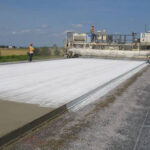
• N8tr revenue projection, FX sustainability in danger
• Production plummets to 1.2m bpd amid rising oil price, mounting petrol subsidy debt
• Nigeria’s crude Bonny Light surges in March – OPEC
• Worries for modular refineries as Dangote may import more crude
Nigeria’s crude oil production plummeted further to a 2024 low in March as the country’s output stood at 1.2 million barrels per day (bpd) according to the Organisation of Petroleum Exporting Countries (OPEC).
While the Federal Government is expecting to produce about 1.78 million bpd in 2024, Nigeria’s oil production was 1.4 million bpd in January and stood at 1.3 million bpd in February before plunging to 1.2 million bpd in March.
The Federal Government had in the 2024 budget estimated N18. 3 trillion revenue, expecting that N8 trillion or 43.9 per cent would accrue from oil revenue, but the projection may become elusive amid mounting debt of $3 billion from rising Premium Motor Spirit (PMS) subsidy as well as crude-backed loans.
OPEC monthly data for March, released yesterday showed that Nigeria’s oil production, which was 1,322 million bpd in February went down to 1,231 million marking a reduction of 91,000 bpd within the month and 549,000 bpd to the budget benchmark.
According to OPEC’s Monthly Oil Market Report (MOMR), crude oil production among the 12 OPEC members increased by 3,000 bpd in March compared to February. This uptick was driven by slight output increases from Iran and Saudi Arabia, alongside Iraq, which continued to exceed its expected production levels.
In March, total crude oil production from all 12 OPEC members, which includes exempted countries like Iran, Libya, and Venezuela under the OPEC+ agreement, averaged 26.60 million bpd. This figure represents a modest increase of 3,000 bpd from the previous month’s average.
In the first quarter of the year, when compared with the budget benchmark, Nigeria was unable to produce about 40.5 million barrels of crude oil, translating to about $3.2 billion.
In January, when compared with the oil production benchmark, Nigeria could not produce about 10.9 million barrels of crude, translating to about $875.4 million using the average $80 barrel oil price in January.
In February, the country could not produce about 13.2 million barrels of crude which translates to $1.1 billion in revenue using the average oil price of $85 per barrel in the month.
In March alone, Nigeria could not produce 16.4 million barrels of crude oil, which would have added about $1.4 billion revenue to the country’s economy.
Meanwhile, Libya overtook Nigeria to emerge top African crude oil producer for the month of March, according to OPEC data. In the April 2024 Monthly Oil Market Report (MOMR) published by the oil cartel, Libya recorded 1.24 million bpd of crude production in March, a 5.7 increase from 1.17 million bpd in February.
This is unlike Nigeria’s recorded output of 1.23 bpd in March compared to 1.32 million bpd in February. The April output figure represented the lowest production rate the nation has recorded since July 2023.
The drop of almost 91,000 barrels per day, according to direct communications from OPEC underscores the difficulties the Nigerian oil sector faces, such as limited infrastructure, security breaches in oil-producing areas, and operational hiccups.
According to experts, large-scale oil theft from pipelines and wells has been one of President Bola Tinubu’s biggest challenges in recent years, damaging government finances and limiting the country’s output and exports.
Last month, the Nigerian National Petroleum Company Limited (NNPC Ltd) appealed to the Economic and Financial Crimes Commission (EFCC) to help tackle the menace of crude oil theft in the country.
Speaking recently about the efforts by NNPC Ltd to eradicate corruption from its system and stem crude oil theft and pipeline vandalism, Mele Kyari, the group chief executive officer of the company contended that going by the volume of oil stolen daily and the brazenness with which the perpetrators operate, crude oil theft was the most humongous and virulent economic crime in Nigeria that must attract the attention of the EFCC.
“As we continue to do our best to deepen transparency and stamp out corruption from the system, there is one big challenge that you will need to help us with,. That challenge is crude theft,” Kyari appealed at an interactive session with Ola Olukoyede at the NNPC Towers in Abuja.
To curb crude theft, the NNPC Ltd launched an application in August 2022 to monitor the incidence of theft and vandalism. The NNPC Ltd also awarded a multibillion-naira pipeline surveillance and procurement to a former leader of the Movement for the Emancipation of Niger Delta, Government Ekpemupolo.
Despite such initiatives, Nigeria continues to experience significant oil losses to vandals, prompting several international oil companies to shift from the onshore sector to offshore.
In another development, Nigeria’s crude oil Bonny Light surged to $87.86 per barrel in March 2024 from $85.65 per barrel in the previous month. The figure represents a 2.6 per cent increase from the product’s price in February.
This is just as Brent crude price soared above $90 a barrel during the period under review. The surge comes amid heightened geopolitical tension in the Middle East region following the Israel and Palestine war in the Gaza Strip.
In the report, OPEC stated that it maintained its forecast for strong global oil demand in 2024, anticipating a rise of 2.25 million barrels per day, bpd this year and a further increase of 1.85 million bpd in 2025.
“The global oil demand growth forecast for 2024 remains broadly unchanged from last month’s assessment of 2.2 mb/d. Slight adjustments were made to the 1Q24 data, with a slight upward revision in OECD Europe and some non-OECD data, reflecting better-than-expected performance in oil demand data. This increase was offset by a downward revision to Africa in 1Q24 and the Middle East in the first three quarters”, the report stated.
Meanwhile, crude oil sales remain Nigeria’s major foreign reserves booster.
 While Dangote Refinery is expected to import about seven million barrels in March and April, prevailing production challenges in Nigeria may see more import of crude oil while other modular refineries may suffer.
While Dangote Refinery is expected to import about seven million barrels in March and April, prevailing production challenges in Nigeria may see more import of crude oil while other modular refineries may suffer.
Dangote Refinery has been sourcing crude oil outside of Nigeria amid local challenges. Despite the Domestic Crude Oil Supply Obligations (DCOSO) in the Petroleum Industry Act (PIA), most modular refineries are operating less than 25 per cent of their capacity due to crude oil challenges.
This comes despite the militarisation of the Niger Delta region and the hiring of private security outfits by the Nigerian National Petroleum Company Limited (NNPC) to enable the country to increase its oil production as producers are decrying huge losses to theft and vandalism.
With the current production, Nigeria may be shifting closer to its production record of 18 months ago when the war against theft started on the backdrop of a less than one million bpd production. Crude oil production data for Nigeria was 972,394 barrels per day in August 2022 and 937,766 bpd in September when the war against oil theft started.
Nigeria’s oil production in October of 2022 was 1.014 million barrels per day, it went to 1.186 million per day in November. The country recorded 1.35 million barrels per day in December 2022. In January of 2023, the overall crude oil production rate for the country was 1.4 million barrels per day, which means condensate and crude oil. Nigeria recorded a daily crude oil production of 1.47 million barrels per day for February before reducing to 1.2 million barrels per day in March 2023.












